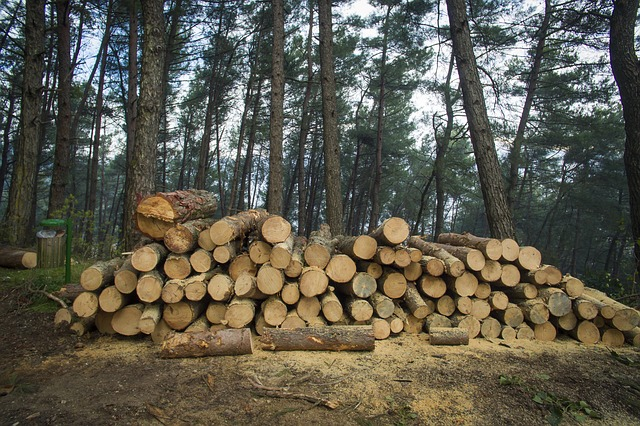
Last Chance to Register for Sierra Club California Summit
California Strives to Save the Vaquita
Combatting Pollution from Conventional Biomass Incineration

Last Chance to Register for Sierra Club California Summit
There’s still time to register for this year’s Sierra Club California Summit, but don’t delay. The Summit will be held October 27 to October 29 and space is limited. You can register here now.
This year’s event will be packed with opportunities to learn new skills, find new inspiration, make new friends and prepare for another year of environmental leadership.
You can find the agenda for the entire weekend here.
The Summit takes place in San Luis Obispo County at the Rancho El Chorro park and public meeting facility. Every Sierra Club member is welcome to attend, and admission is low.
The entire weekend, including rustic lodging in a bunkhouse-style cabin or pitching your own tent, from Friday evening through Sunday morning, costs just $70. Pizza on Friday evening, lunch and dinner on Saturday and breakfast on Sunday are included.
If you attend for just one day, the fee is $35.
If rustic camping or bunking isn’t your style, there are plenty of reasonably priced lodging options in San Luis Obispo and Morro Bay.
Nobody is turned away from the meeting due to lack of funds, and some scholarships are available. But space is limited, so sign up now.
For information on scholarships, contact Meg Gunderson.

California Strives to Save the Vaquita
By Eddie Moreno
Only found in the Gulf of California, Mexico, the vaquita is the world’s rarest marine mammal and it is on the edge of extinction.
A combination of state and federal governments and environmental organizations are scrambling to save this petite porpoise. This year Assemblymember Todd Gloria introduced Assembly Bill 1151 (AB 1151) to make it unlawful to sell, trade or distribute, in California, fish products caught with vaquita-harming drift gillnet gear in the upper Gulf of California.
With fewer than 30 vaquita remaining in the wild and with an annual decline rate of about 50 percent per year, this animal may be the most engendered species in the entire world.
AB 1151 represents a long line of attempts by the California legislature to ban the use of drift gillnets in some form or another. The high demand for a number of fish in Pacific Ocean keeps both legal and illegal drift gillnets out at sea.
In the Gulf of California, California’s demand for crustaceans such as the Mexican shrimp and China’s demand for the fish totoaba’s swim bladder are resulting in the entangling and drowning of the vaquita as they get trapped or hooked on the indiscriminate gillnet gear used to catch these fish.
Mexico has temporarily banned the use of most gillnets in the vaquita habitat hoping to slow their imminent decline. However, enforcement has been spotty at best and the population continues to plummet.
AB 1151 is designed to add some strength to that ban by disinsentivizing the use of this fishing gear by making it illegal to buy fish products in California caught with gillnets.
As the bill approached its final floor vote in September, AB 1151 caught the attention of the California Department of Fish and Wildlife (DFW). The agency asked the author to hold the bill while active discussions among DFW, the federal government, and the Mexican government about how to save the vaquita proceed.
Assemblymember Gloria agreed to hold the bill. His office is being kept apprised of the discussions. The bill remains alive and can be moved next year if the discussions don’t result in stronger vaquita protections.

Combatting Pollution from Conventional Biomass Incineration
Sierra Club California has increased its focus on forests and conventional biomass incineration thanks to new funding from the national Sierra Club, via a grant from the Packard Foundation.
The funding supports an organizer, Daniel Barad, who joined Sierra Club California’s staff in May.
Since joining Sierra Club California, Daniel has been engrossed in learning about California forests, biomass policies, and Sierra Club activism. He has talked to volunteers, attended state agency meetings, delved into forest science, toured a handful of biomass facilities, and met with various people representing different points of view in the biomass debate.
Conventional biomass incineration relies on combustion within a giant incinerator to produce heat that runs turbines that produce electricity. The conventional facilities also produce air pollution that can rival the pollution rates of a coal-fired power plant.
Lately, the news has been full of footage of ferocious forest fires fueled by over-stocked forests and a warming climate. In California, the logging and biomass industries are using concerns about drought and beetle-infected tree deaths, along with the forest fires, to try to extend the life of polluting conventional biomass incinerators or to justify building new conventional incinerators.
Among other things, the conventional biomass incineration industry has successfully pushed through legislation in California in the last two years that mandates that utilities purchase a given amount of electricity from those old facilities.
Conventional biomass incineration facilities have three environmental strikes against them: They produce air pollution. They are dependent on burning forest trees and brush at a rate that is generally not sustainable. The electricity they produce displaces electricity production from non-polluting renewable resources.
Daniel is preparing a PowerPoint presentation about conventional biomass incineration in California and will be reaching out to local chapters and groups to share it. Watch for more information on the Sierra Club California website: http://www.sierraclubcalifornia.org.
Follow Us:
  |
Thank you for being a part of our work! Consider making it monthly. You may securely donate online or by sending a check to Sierra Club California at 909 12th Street, Suite 202, Sacramento, CA 95814.
